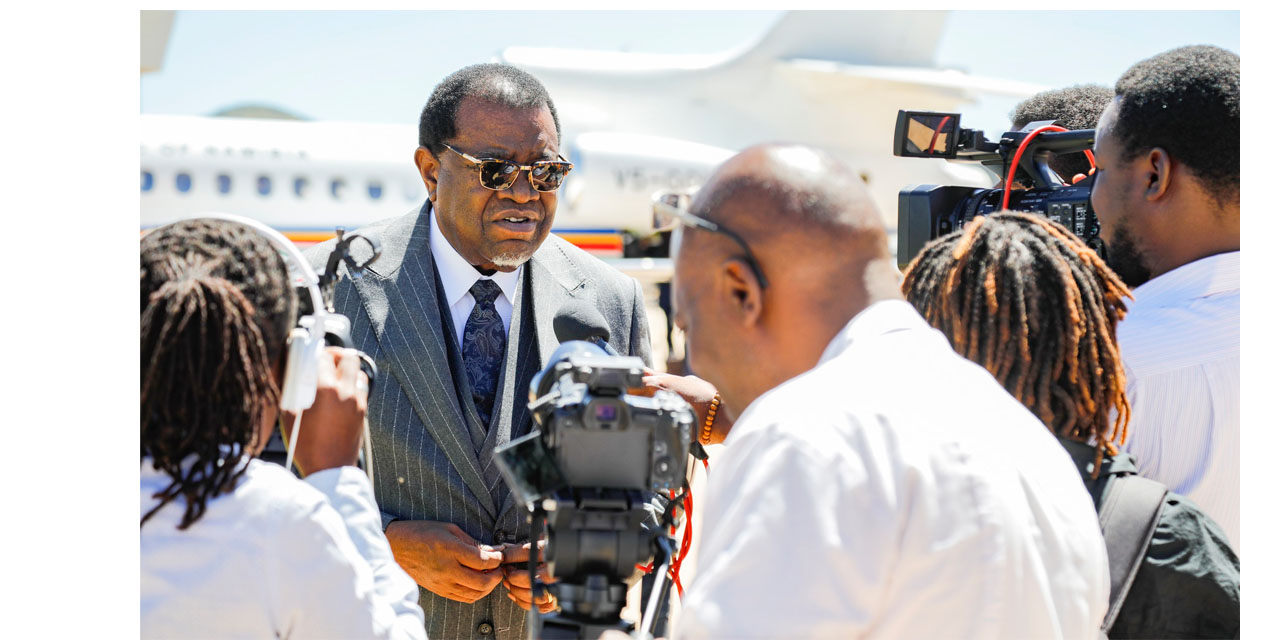Niël Terblanché
Namibia has reclaimed the top spot in Africa as the country with the freest press.
According to World Press Freedom Index, Namibia is not only ranking high on the African ladder but is also 22nd from the top, globally.
On Wednesday, the world commemorated Press Freedom Day. In a statement, President Hage Geingob stated that the media is crucial to democracy, plays an essential role in keeping the public informed and is there to keep Government institutions accountable.
“Therefore, the media is an important pillar of effective governance and should be assured that I will guarantee freedom of the Fourth Estate for as long as I am the President of Namibia,” the President promised.
This year’s commemoration was under the theme ‘Shaping a Future of Rights: Freedom of Expression as a driver for all other human rights’. This year marks the 30th anniversary of the day being proclaimed as Press Freedom Day by the United Nations General Assembly.
Press Freedom Day was first called into being to advocate for freedom of expression and access to information for the protection and advancement of human rights and humanity.
President Geingob said that Namibia’s position on press freedom demonstrates the fact that the strength of Namibia in press freedom is a function of his and the Government’s commitment to upholding the values of the Constitution of the Republic of Namibia.
“World Press Freedom Day provides an opportunity for the press in Namibia to reflect on its role in strengthening the quality of Namibian democracy by reporting accurately and fairly, consistent with their own Self-Regulatory Code of Ethics,” Geingob said.
President Geingob undertook to continue to champion transparency and accountability as core pillars of Effective Governance for the benefit of the Namibian people.
According to a statement issued by the Minister of Information and Communication Technology, Peya Mushelenga, Namibia’s ability to reclaim the top spot in Press Freedom is attributed to among others, the promulgation of the Access to Information Act in December 2022.
Mushelenga said that government will continue to take effective steps in implementing the Access to Information legislation as demonstrated by the commitment of N$20 million for the current financial year towards the establishment of the Office of the Information Commissioner.
“The Access to Information Act is a cornerstone of freedom and will allow the media to access information to inform the Namibian people to make informed decisions in order to improve their socio-economic well-being,” he said.
The minister said that the Government of Namibia will continue to uphold all human rights without any discrimination
“Any violation of human rights is indeed a violation of the principle on which the Namibian Nation was founded to attain independence,” he said.
Mushelenga on behalf of the Namibian Government also undertook to continue to promote press freedom as enshrined in Article 21 of the Namibian Constitution, which guarantees the freedom of the media and he also reassured the citizenry of the government’s commitment to maintaining a conducive environment for the media to flourish and ensure access to quality, timely and information as required by the Windhoek Declaration.
The Windhoek Declaration for the Development of a Free, Independent and Pluralistic Press, the Windhoek Declaration for short, is a statement of press freedom principles made by African newspaper journalists in 1991. The Declaration was produced at a UNESCO seminar, “Promoting an Independent and Pluralistic African Press,” held in Windhoek, the capital of Namibia, from 29 April to 3 May 1991. The date of the Declaration’s adoption, May 3, has subsequently been declared as World Press Freedom Day. The document has been viewed as widely influential, as the first in a series of such declarations around the world, and as a crucial affirmation of the international community’s commitment to freedom of the press.




